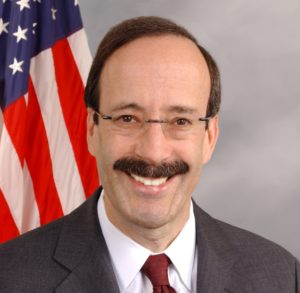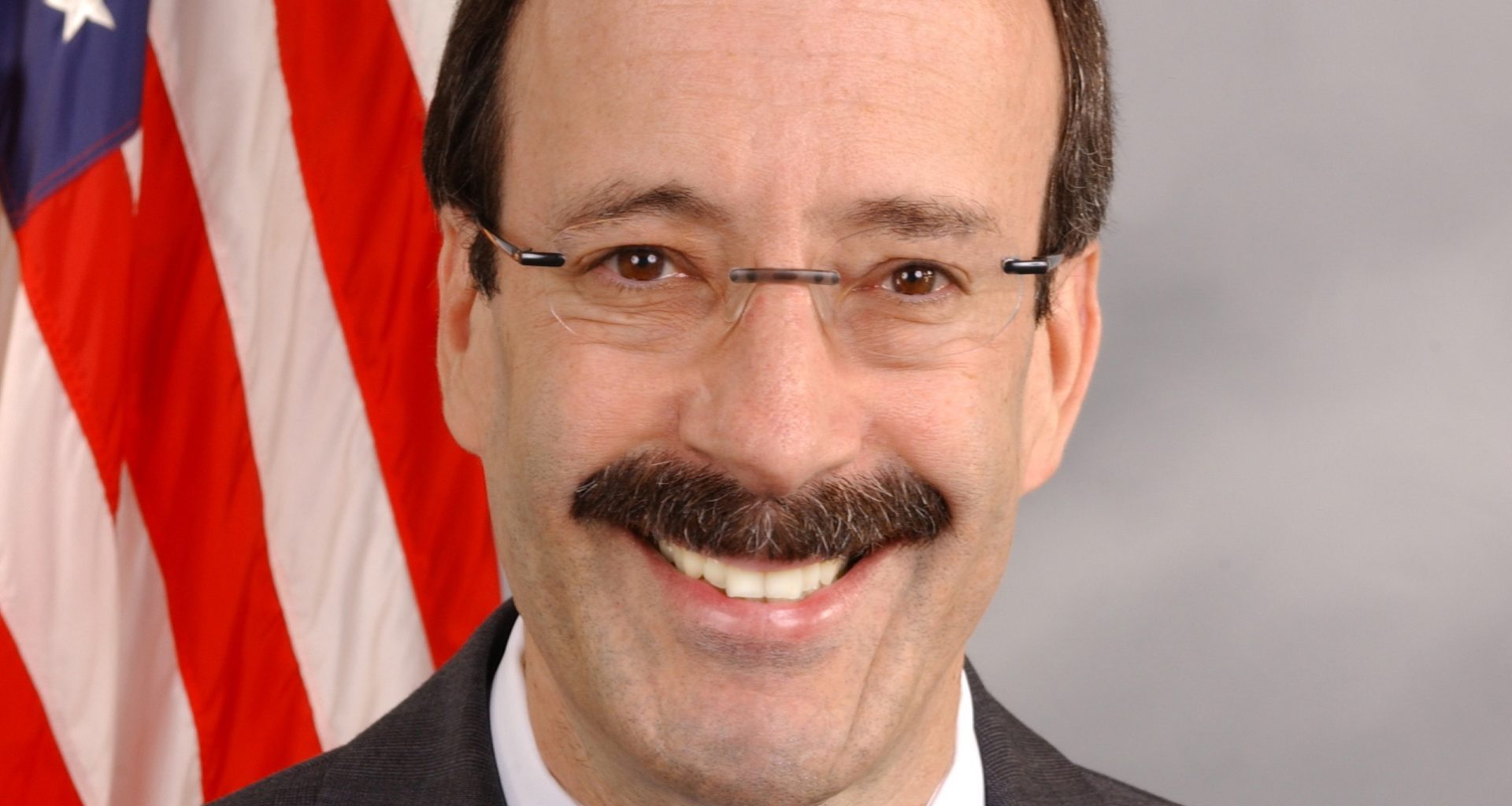BBG Watch Commentary

Today, the House Foreign Affairs Committee unanimously passed bipartisan reform legislation to improve the missions, objectives, and effectiveness of U.S. international broadcasters, such as the Voice of America (VOA), Radio Free Europe-Radio Liberty (RFE/RL), Radio Free Asia (RFA), and the Middle East Broadcasting Network (MBN). The Committee also unanimously passed a measure calling for an end to attacks on Syrian civilians and expanded humanitarian access; a measure calling for establishment of a Syrian War Crimes Tribunal; and an international religious freedom measure to protect cemeteries from desecration. [A summary of today’s Committee action, including adopted amendments, will be available HERE.]
H.R. 4490, the United States International Communications Reform Act of 2014 or Royce / Engel U.S. International Broadcasting Reform Legislation, was introduced this week by Chairman Ed Royce (R-CA) and Ranking Member Eliot Engel (D-NY) following their visit last week to Ukraine.
Even as this bipartisan legislation was being unanimously passed by the House Foreign Relations Committee, Voice of America (VOA) executives, who bear a large portion of the blame for mismanagement which prompted the congressional Committee’s action, were discussing behind closed doors how to report on these reforms. At the same time, they failed to arrange for coverage of Vice President Biden’s speech at the Atlantic Council dealing with Ukraine, Russia, and NATO security guarantees. VOA English News was about four hours late in reporting on Biden’s announcement that President Obama will travel to Poland, Belgium, and France in June and instead of posting its own report had to rely a a short news item from Reuters.
Sources told BBG Watch that the current spin from VOA executives, who are afraid of losing their jobs for mismanaging the organization, is that the legislation may not be signed into law and that it is designed to limit Voice of America’s journalistic independence. They may have been surprised when the bill was passed unanimously by the House Foreign Affairs Committee.
VOA managers failed to arrange for updating the news report on which they labored for a long time behind closed doors. But not updating news or failing to report news promptly is nothing new at the Voice of America, and that’s why the Congress intervened and proposed legislation to reform U.S. international media outreach.
Rep. Eliot Engel (D-NY) denied that the bill is designed in any way to limit VOA’s journalistic independence. The VOA Charter, which lawmakers have accused VOA executives of ignoring, was incorporated into the bill.
REP. ELIOT ENGEL (D-NY): “Lastly, and perhaps most importantly, this bill maintains the requirement that U.S.-funded programming serve as objective sources of news and information, and not simply as a mouthpiece for U.S. foreign policy. It’s absolutely critical that the news be accurate and seen as credible by the foreign audiences we’re trying to reach.”
PRESS RELEASE
Wednesday, April 30, 2014
ENGEL REMARKS ON U.S. BROADCASTING REFORM LEGISLATION
WASHINGTON, DC—Representative Eliot L. Engel, the leading Democrat on the House Foreign Affairs Committee, today made the following remarks regarding H.R. 4490, the United States International Communications Reform Act:
“Mr. Chairman, thank you for holding this mark-up of bipartisan legislation that will enhance the ability of the United States to facilitate the free flow of information and share our values with people around the world.
“Mr. Chairman, on the recent trip you led to Ukraine, we saw firsthand that the competition of ideas and the battle for hearts and minds are alive and well. Over the past few months, Moscow has used its state-controlled media to broadcast totally baseless propaganda that’s been used as a pretext for Russia’s invasion of Crimea and its destabilizing activities in eastern Ukraine.
“But Ukraine is far from the only place where objective news is in demand. In Iran, the regime closely controls the free flow of information and has actively jammed U.S. satellite transmissions. And in North Korea, the regime locks radios on certain frequencies to prevent people from listening to the Voice of America and Radio Free Asia.
“Unfortunately, our efforts to disseminate objective news to societies that lack a free media are not as effective as they should be. Last year, a report by the State Department Inspector General found that the Broadcasting Board of Governors—the agency that currently oversees all U.S. international broadcasting—was ‘failing in its mandated duties’ due to a flawed structure and strong internal dissension.
“The bill that Chairman Royce and I introduced, with support from many of our colleagues on both sides of the aisle, will help fix this structure by improving management, enhancing coordination among the different broadcasting entities, and empowering journalists and editors to produce high-quality programming that keeps pace with the rapidly changing international media landscape.
“Specifically, the legislation creates a chief executive officer to manage the day-to-day operations of the new U.S. International Communications Agency, an umbrella organization for Voice of America and Office of Cuba Broadcasting. And it also creates a CEO to run the Freedom News Network, a new organization comprised of the three existing private grantees, which are – Radio Free Europe/Radio Liberty, Radio Free Asia, and the Middle East Broadcasting Networks.
“The bill also defines the missions of VOA and the Freedom News Network to reduce the duplication of programming, and requires robust coordination between the federal and private entities—including the sharing of content and strategic plans—to maximize efficiency.
“Under the new organizational structure, Voice of America—VOA, the flagship of U.S. broadcasting for more than 50 years—will remain the primary source of information about the United States and our culture, while the three grantees that form the Freedom News Network will continue to provide news to audiences about developments in their own countries. Only by working closely together will these broadcasters be effective in providing comprehensive news and information to those who need it most.
“When I was recently with Chairman Royce in the eastern part of Ukraine, we met a lot of people who said that they really would welcome more information from the United States… that they really don’t get the balanced type of information. And we know Radio Free Europe and others were the ones that helped the Soviet Union collapse. And so this is a really smart thing for us to do.
“Lastly, and perhaps most importantly, this bill maintains the requirement that U.S.-funded programming serve as objective sources of news and information, and not simply as a mouthpiece for U.S. foreign policy. It’s absolutely critical that the news be accurate and seen as credible by the foreign audiences we’re trying to reach.
“Mr. Chairman, I’d like to thank you again for holding this important markup and really for your leadership over the course of many years on international broadcasting issues. This is one ball that you’ve run with for many years, even before your were chairman of this committee. And it’s very much noticed and very much appreciated. I’d also like to thank you for working with us on this legislation in a bipartisan manner. I have some votes in my other committee so I may be in and out, but this legislation is so important and should be passed with no dissension because I think this is the type of legislation this committee can be proud of, again, on a bipartisan basis.
“Thank you Mr. Chairman.”
The committee considered the legislation at today’s markup.
###

Comments are closed.